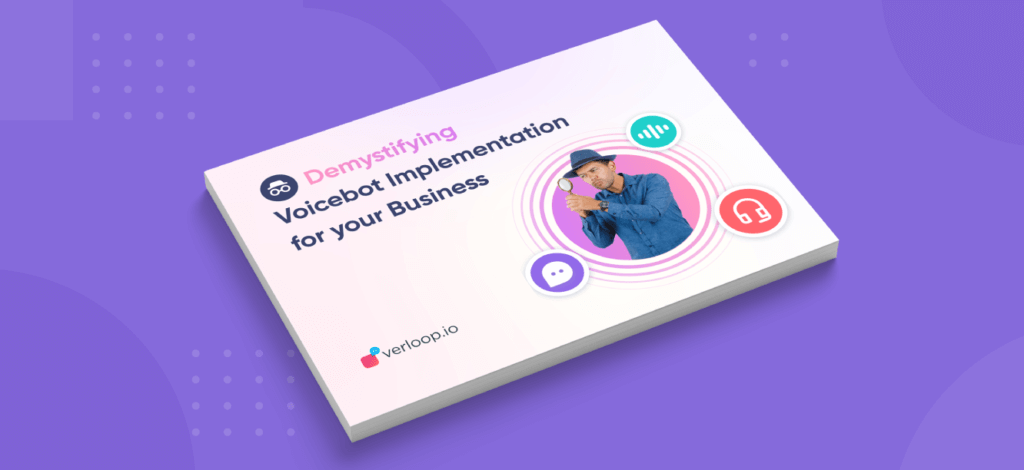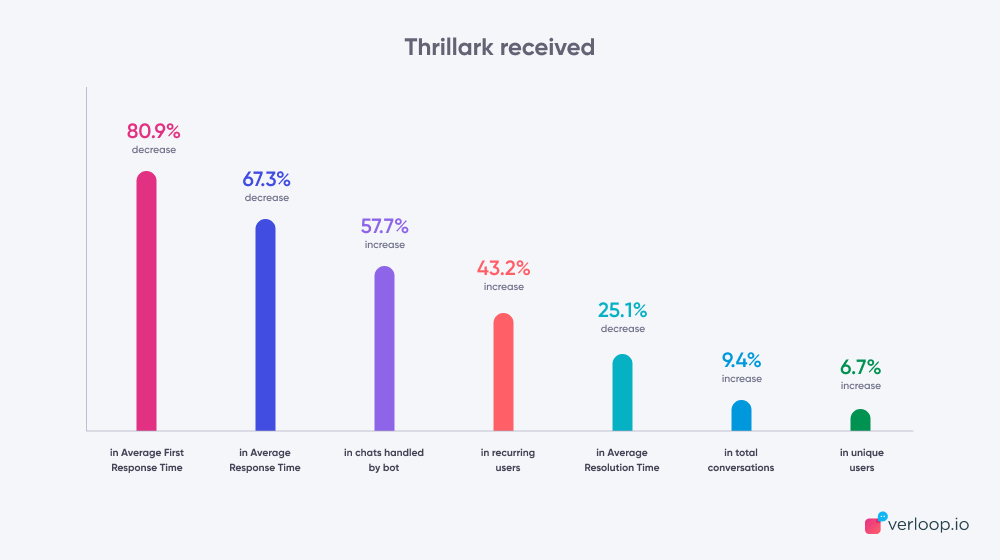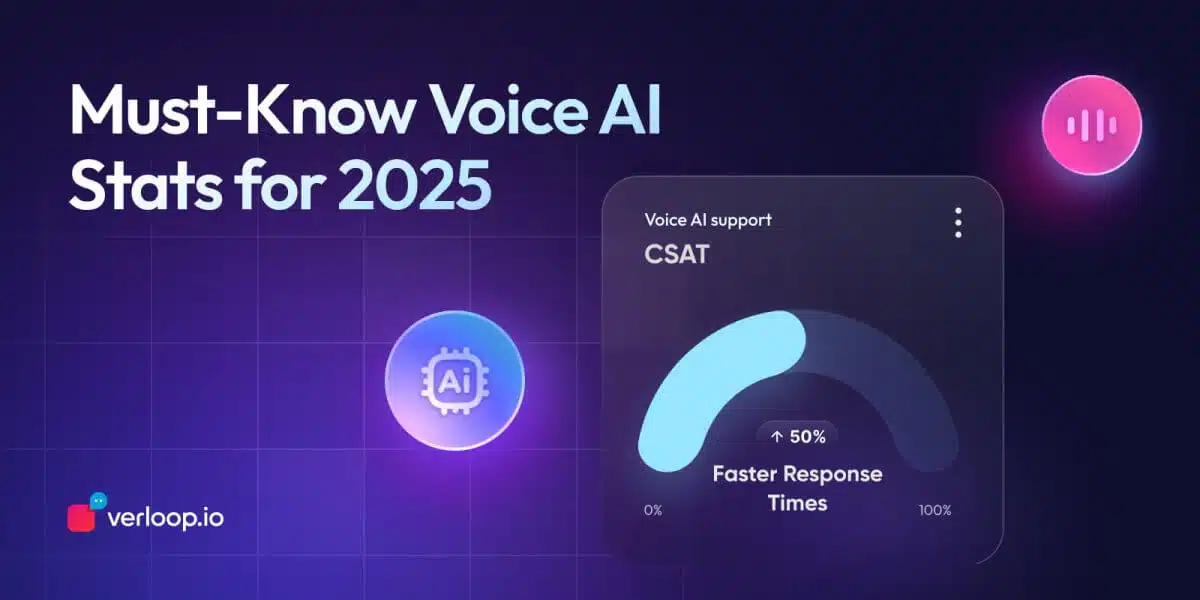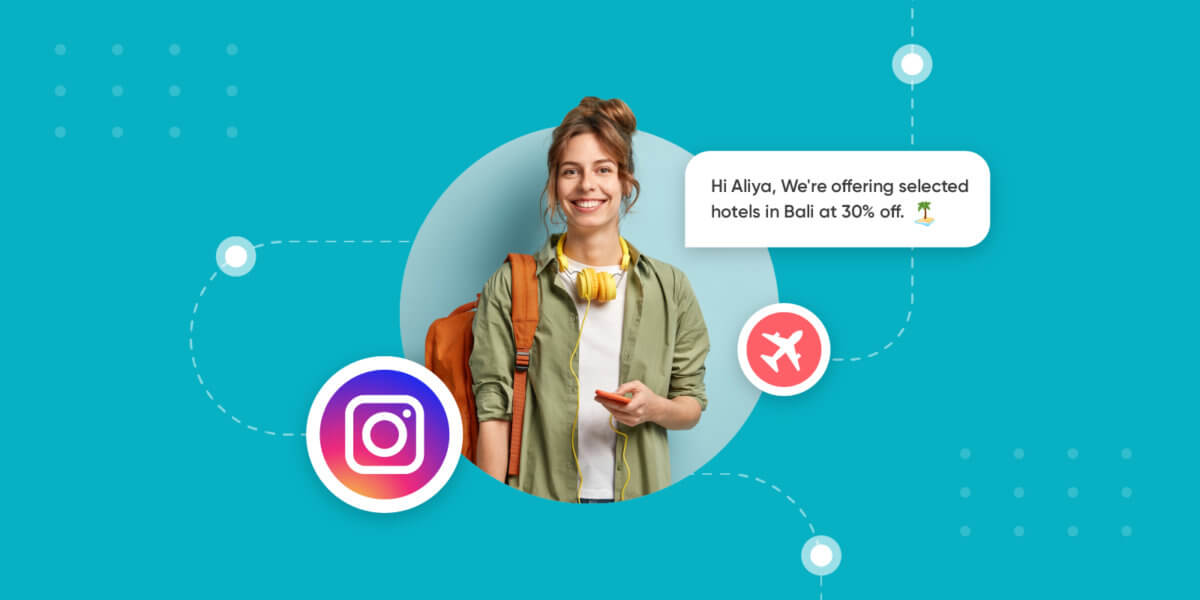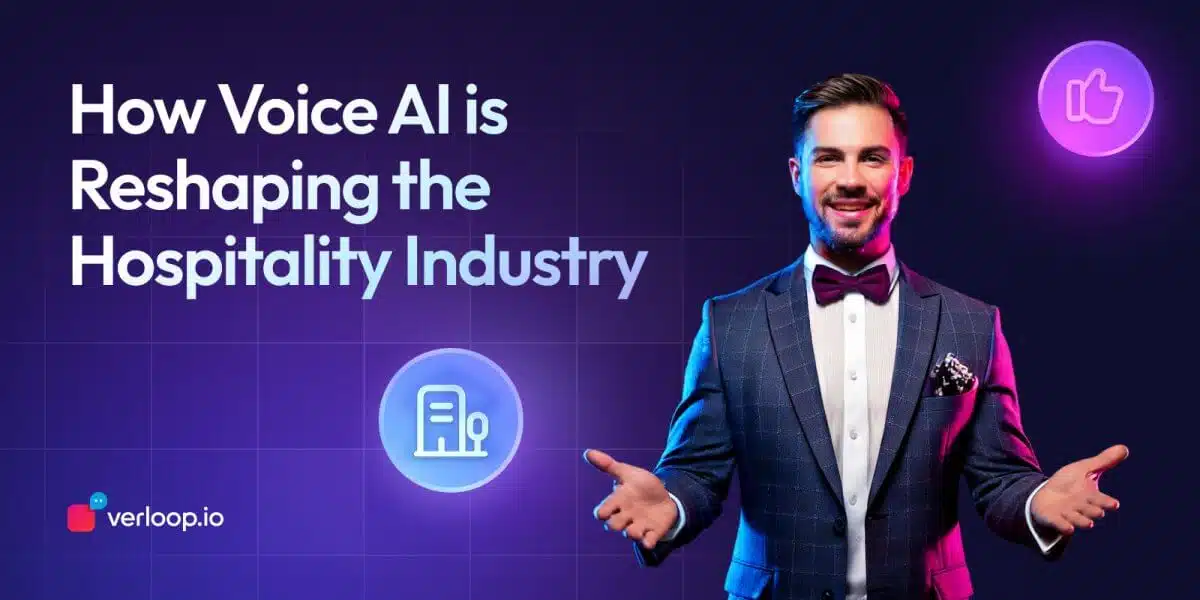
How Voice AI is Reshaping the Hospitality Industry
- February 24th, 2025 / 5 Mins read
-
 Aarti Nair
Aarti Nair
Imagine calling a travel agency or booking MakeMyTrip to book your next getaway and being greeted by a clear, friendly voice AI. Instead of navigating complex menus or waiting on hold, you speak naturally to the system to confirm your flight details, reserve a hotel room, and even receive suggestions to optimise your itinerary.
Both hotels and travel agencies can adopt voice AI for travel and hospitality on their telephony systems, IVRs, and other modes of outbound and inbound voice communication.
Nearly 78% of hotels are now using voice-activated devices to assist guests with routine tasks, while many travel agencies report a marked improvement in customer support response times. These systems streamline easy booking, provide real-time support for inquiries, and help manage detailed itineraries—all while allowing human staff to focus on more personalised services.
By integrating voice AI into telephony, hotels and travel agencies are addressing everyday challenges in travel planning and guest support, making the process smoother and more efficient for all travellers. Let’s understand in depth
The Current Landscape for the Need of Voice AI Technologies in Travel and Hospitality Industry
Voice AI is making a measurable impact on travel and hospitality by addressing everyday challenges with practical solutions. In hotels and travel agencies, this technology is now a vital component of everyday operations.
For example, research shows that AI adoption in hospitality is expected to grow at a compound annual growth rate of 25.1% from 2023 to 2030, with 47% of industry businesses planning to boost their investments in the next two years. Today, 78% of hotels use AI-driven tools—such as virtual concierges—to assist guests with inquiries about amenities, local attractions, and dining options. This approach not only provides guests with personalised service but also contributes to a reduction in operational costs by up to 20%.
In the travel sector, voice-activated booking systems powered by natural language processing allow customers to arrange hotels, flights, and activities by speaking their preferences, a method predicted to influence 60% of travel bookings by 2025. With 82% of travellers favouring companies that offer AI-driven personalisation, these systems help increase guest satisfaction by roughly 28% in hotels.
Voice AI also plays a role in revenue management. Its integration in pricing strategies contributes to an average 15% increase in Revenue Per Available Room (RevPAR), while AI-based fraud detection reduces fraudulent transactions in online bookings by 62%. Additionally, predictive maintenance tools driven by AI can lower annual maintenance costs by up to 30%, ensuring smoother facility management.
Moreover, customer expectations for personalised experiences continue to rise. Voice AI systems can remember individual preferences, such as favourite room settings or dining options, and provide tailored recommendations at scale. This ability to handle numerous routine interactions without additional staffing makes the solution highly scalable, ensuring that both high call volumes and diverse customer needs are met consistently.
Overall, outbound voice AI solutions and even inbound voice call solutions are playing a central role in simplifying bookings, offering real-time support, and managing itineraries in a way that not only improves guest experiences but also supports operational efficiency and profitability in travel and hospitality.
Suggested Reading: How is a Voice Assistant Different From Voicebot and Voice Chat?
How does voicebot address dynamic customer expectations and changing travel and hospitality industry trends?
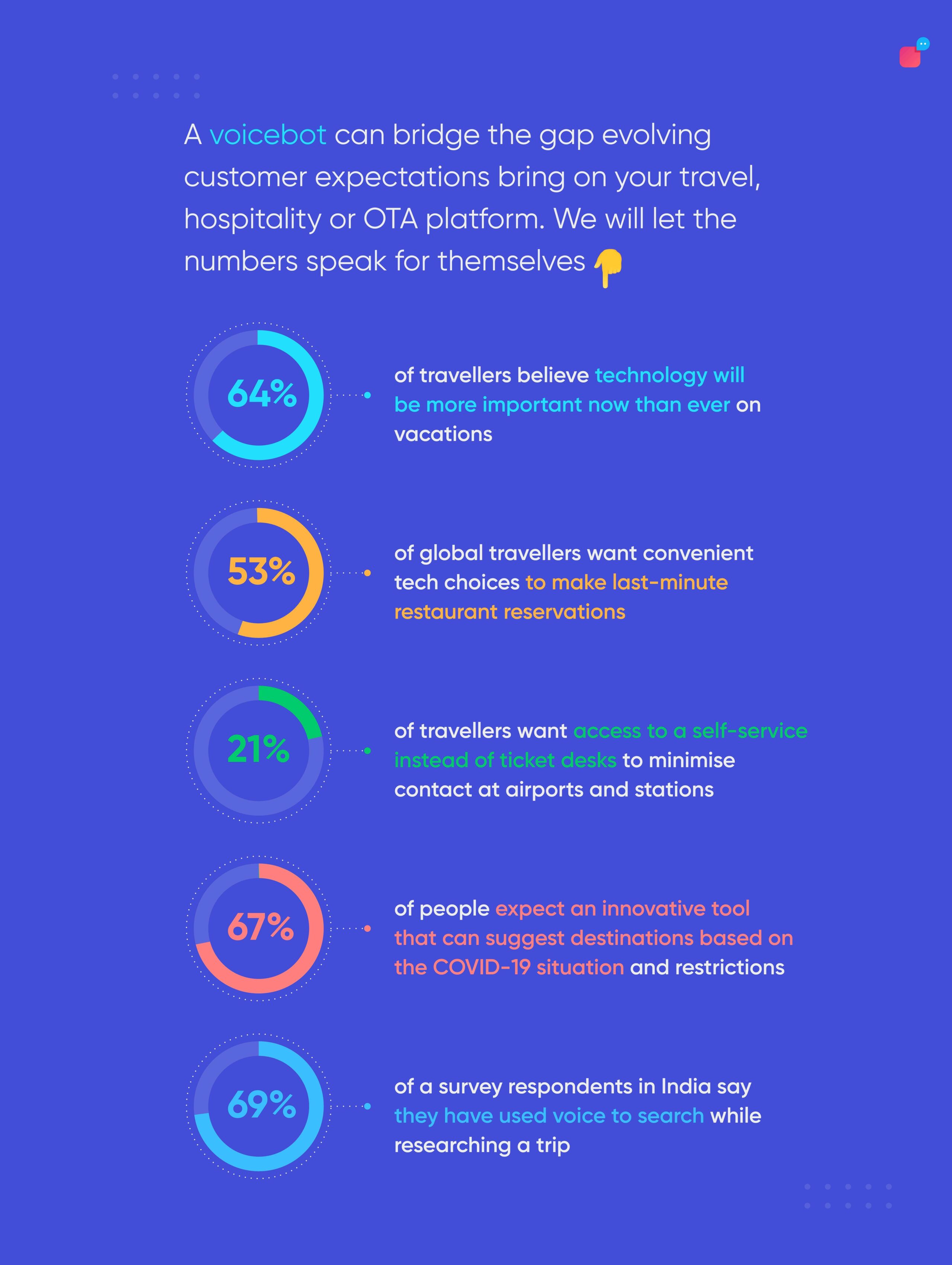
Convenience and accessibility of information in real-time are crucial for just any traveller. With changing regulations and uncertain travel restrictions, customers always expect to stay in the know. PwC reports that every 1 in 3 people abandon a brand they love after going through just a single bad experience. And in tourism/hospitality, where many people travel to create happy memories, happy user experiences can’t be compromised.
This is why a conversational voicebot can be your trusted right-hand man to provide delightful customer experiences.
1. Unfaltering accessibility, even at the eleventh hour
Let’s talk about a user who needs to catch a flight at once at 6 PM and another time at 6 AM. However, they are facing trouble completing their web check-in.
A manned support team may be quick to respond in the first scenario, but can they offer assistance at 4 AM for the early morning flight?
People don’t just travel between 9 to 5. And so, your customer support needs to be available, accessible, and consistent at all times of the day. This is where a travel voicebot can be a great handy tool for your customer. In fact, 64% of travellers believe technology will be more important now than ever on vacations. A trained voice AI in tourism can guide the user through the steps to perform a task frictionlessly with no agent intervention.
2. Personalised error-free interactions, every time
1 in 3 tourists is willing to pay more to businesses for information tailored to their needs.
Let me put the importance of personalisation in travel into perspective with an example.
Dia wants to reschedule her bus journey and only wants a ride that leaves earliest in the morning. Here, two things will happen with a trained voicebot –
- It will accurately assess the rescheduled date for the new booking
- It will personalise the choices based on which buses are scheduled to leave at dawn.
Our traveller, Dia, can now easily choose the bus ride that suits her schedule. As the next step, an intelligent travel voicebot can even collect payments by sending payment links to the user right then and there. Personalisation not only lies in what user has to say in real-time but also in what they have communicated previously. Your voicebot can access every bit of information available with seamless CRM integrations before coming back with the right response. And all this without human intervention.
3. Efficient self-service during the holiday rush
Whether you are buying a gift or booking a holiday, people are more willing to spend during the festive seasons. People are travelling back home or planning vacations with their families and friends. Naturally, your travel or hospitality business will also see a spike in call volumes. This is where the gap lies.
During holiday rush hours, customers have to wait in queue for an available agent to assist them. In fact, 33% of customers find waiting on hold most frustrating.
Here, the customer expects quick answers and timely solutions. A travel voicebot can deliver on that throughout the rush season consistently. And you don’t have to add more agents to your support team to take up the surge. Last-minute flight cancellations, upgrading hotel accommodation, booking a hotel shuttle – your travellers can use a self-service tool like a voicebot to get an accurate answer to everything, even at short or no notice!
We think you’d also like to know: How to optimise your customer support during the holiday season?
4. Personal hotel concierge
With intelligent voice automation, hotels can offer guests a superior travel experience through hyper-personalisation.
Conventionally, if guests want assistance with anything, they’d be required to call the reception desk. This can be a daunting task for the customer if they want assistance multiple times. Some might even feel awkward calling up the reception desk for everything. Flexibility regions supreme for global travellers who are open to technology acting as their on-demand assistants. For instance, 53% of international travellers want convenient tech choices to make last-minute restaurant reservations.
This is where a hospitality voicebot can work as your guest concierge available at their disposal. You can use it to request toiletries and towels, schedule wake-up calls, take orders for in-room dining, reserve tables, help in locating services (such as local eateries, car rentals, etc.), act as a translator, and share real-time updates on time differences, traffic or weather conditions.
Key Use Cases of Voice AI in the Travel and Hospitality Industry
Voice AI solutions are steadily changing the travel and hotel industry by enhancing customer engagement through practical and measurable improvements. By integrating these systems into telephony networks, hotels and travel agencies are able to offer seamless interactions that cater to modern customer expectations. Below are some notable use cases supported by recent statistics:
1. Hassle-Free Booking and Payments
Voice AI assistants allow customers to book flights, hotels, or rentals using simple voice commands. This approach removes the need to fill out lengthy forms or navigate complex websites. For instance, tools like Skyscanner’s “Savvy Search” have made the booking process more straightforward, contributing to a tourism market projected to reach USD 13.38 billion by 2030.
2. Personalised Travel Planning
AI travel agents can gather and interpret individual customer preferences to create customised itineraries. These systems suggest accommodations, activities, and transportation options based on specific traveller needs. With 82% of travellers more likely to choose companies that offer AI-driven personalisation, these solutions help build trust and secure customer loyalty.
3. Real-Time Assistance
Voice AI provides immediate updates and solutions during travel. If a flight is delayed, for example, the system can notify the traveller promptly, offer alternative options, and even recommend nearby lounges. This timely support eases the stress of unexpected changes and helps maintain a smooth travel experience.
4. Post-Trip Engagement
After a journey, voice AI continues to interact with customers by collecting feedback and suggesting future travel opportunities. These virtual travel agents may also offer rewards such as discounts or loyalty points, keeping customers engaged and encouraging repeat bookings.
5. Automated Customer Service
Voice AI chatbot interfaces deliver 24/7 customer service. They answer queries, direct customers to useful resources, and even upsell additional products or services—all without human intervention. This constant availability ensures that support is provided at any time of day.
6. Flight Forecasting
By analysing both historical and real-time data, AI can predict landing times and potential delays. This capability assists travellers in planning their schedules more effectively and minimizes the uncertainty associated with travel disruptions.
7. In-Person Customer Service
Within hotels, AI-powered virtual assistants handle guest requests, provide details about amenities, and offer personalised recommendations. This on-site assistance contributes to a smoother guest experience while reducing the workload on front desk staff.
From simplifying bookings and payments to delivering personalised travel planning and real-time assistance, these solutions help meet modern customer expectations while improving operational efficiency and security.
Benefits of Voice AI Call Platform for Hotels and Travel Agencies
Voice AI systems bring a range of advantages to hotels and travel agencies:
Improved Guest Interactions
Voice AI offers immediate, tailored responses to guest inquiries. When a guest calls to ask about services or amenities, the system provides answers that reflect their individual needs. This direct interaction makes the customer experience more engaging and responsive.
Smoother Operations
By handling everyday tasks such as check-ins, room service requests, and information queries, voice AI systems help reduce the workload on staff. This shift allows operational processes to run more smoothly and minimizes the pressure on human resources.
Reduced Operational Expenses
With routine activities managed automatically, hotels and travel agencies experience a reduction in expenses. This cost-saving means that fewer resources are required to handle repetitive tasks, freeing up funds for other priorities.
Focus on Complex Services
As voice AI takes care of standard interactions, staff are free to concentrate on tasks that require human insight and detailed attention. This enables teams to address more complex or personalised service requests, ultimately improving overall customer care.
Together, these benefits contribute to a more efficient and customer-focused operation, ensuring that both hotels and travel agencies can meet the growing demands of modern travellers.
Challenges and Considerations for adding Voice in the Travel and Hospitality industry for Support and Sales Use Cases
Implementing Voice AI for support and sales use cases in the travel and hospitality industry offers significant benefits, but it also presents a number of challenges and important factors to consider. Below is a detailed look at the hurdles and key points that hotels and travel agencies should keep in mind when adopting these solutions.
Challenges
1. Privacy and Security
Ensuring guest data remains confidential is critical. Voice AI systems must meet data protection regulations and protect sensitive information from potential breaches.
2. Integration with Existing Systems
Bringing Voice AI into current hotel management and booking platforms can be complicated. This process often requires considerable investment in both technology and staff training.
3. Accuracy and Understanding
It is important for Voice AI to correctly interpret a range of accents, dialects, and languages. Errors or misinterpretations can lead to guest frustration and a less satisfactory service experience.
4. Cost
The expense involved in implementing and maintaining Voice AI solutions is a key consideration. Companies need to carefully assess these costs against the expected benefits and return on investment.
5. Guest Acceptance
Some guests may feel hesitant about using Voice AI technology. Providing an optional, user-friendly experience is essential to ensure that all customer segments feel comfortable.
6. Technical Issues
Voice AI systems may encounter technical glitches such as connectivity problems or software bugs. These issues can disrupt service and have an adverse effect on customer satisfaction.
Considerations
1. User Training and Support
Comprehensive training for staff to manage and troubleshoot Voice AI systems is necessary. This support helps ensure smooth operation and quick resolution of any issues that arise.
2. Customisation and Personalisation
Voice AI solutions should be adaptable to the specific needs of each hotel or travel agency. Customisation is key to providing personalised guest experiences that resonate with individual preferences.
3. Continuous Improvement
Regular updates and enhancements are essential to keep the Voice AI system aligned with the latest technological developments and changing customer expectations.
4. Feedback Mechanism
Establishing a method for collecting guest feedback on the Voice AI experience helps identify areas for improvement. This input is valuable for making adjustments that improve overall satisfaction.
5. Marketing and Promotion
Effectively communicating the benefits of Voice AI can boost its adoption. Clear promotion helps guests understand the added convenience and improved service, which in turn increases acceptance.
By carefully addressing these challenges and considerations, hotels and travel agencies can successfully integrate Voice AI into their operations. This balanced approach supports better customer engagement, improved operational efficiency, and ultimately, a more secure and satisfying service experience.
Conversational AI Real-World Case Studies
Practical examples from the industry illustrate how Voice AI solutions are streamlining support operations and boosting customer engagement in travel and hospitality. Several companies have implemented these tools to reduce repetitive queries, shorten response times, and shift the focus of support teams to more complex issues. The following case studies demonstrate measurable improvements in customer support and operational efficiency.
Thrillark’s Effortless Support Strategy
Thrillark, a prominent OTA based in Dubai, was handling an average of 100 support calls per day, which placed significant strain on its support agents. After integrating a conversational AI solution from Verloop.io across its website and social channels, the number of daily calls dropped to just 20.
The implementation resulted in an 80.9% decrease in average first response time, a 43.2% increase in recurring users, and 57.7% of conversations managed by bots. This approach allowed the support team to devote more time to complex tasks while ensuring that customers received prompt answers to routine inquiries.
Flyin’s Transition to Chatbot-Driven Support
Flyin, headquartered in Riyadh, faced challenges with the slow response times of traditional email support, which ranged from 30 to 40 minutes. By adopting a chatbot system, Flyin cut its first response time down to 17–20 seconds and reduced overall ticket resolution time to approximately 32 minutes.
The new system not only handled customer queries across multiple languages but also enabled Flyin to phase out email support entirely. This shift resulted in a more responsive customer support environment and improved the efficiency of their operations.
AbhiBus’s Boost in Agent Productivity
AbhiBus, based in Hyderabad, experienced a surge in customer inquiries as it expanded its services. In response, AbhiBus deployed a conversational support solution that included an FAQ-driven chatbot integrated with its CRM. This tool was capable of resolving 96% of customer queries in under one minute, leading to a threefold increase in customer engagement and a 33% boost in agent productivity. With 91% of users satisfied with the speed and quality of responses, AbhiBus was able to consolidate support efforts across various platforms, reducing the overall workload for its human agents.
These case studies from Thrillark, Flyin, and AbhiBus clearly demonstrate the practical benefits of Voice AI solutions in the travel and hospitality industry. By reducing support call volumes, accelerating response times, and effectively managing routine inquiries, these tools free up staff to focus on more complex issues and improve overall service quality.
As companies in the industry continue to adopt Voice AI on their telephony systems, these examples provide valuable insights into building a more responsive and cost-effective customer support framework.
Let’s bring back travel diaries with Verloop.io’s travel voicebot
The post-pandemic traveller is more cautious and wants to stay up-to-the-minute when away from home. Flight disruptions, COVID-19 restrictions, and misinformation make people apprehensive and unsure about their travel plans. Here’s where your voicebot can be their trusted advisor that can help them plan and navigate their travel plans better.
According to a McKinsey report, artificial tourism intelligence has the potential to generate a staggering $400B in value. As such, businesses that fail to leverage this opportunity are effectively leaving money on the table. While it may take some time to cover other aspects of AI, voice is the low-hanging fruit that offers fewer barriers to entry and a quicker market. And so, it can be your best bet to navigate the ever-evolving demands of a modern traveller unhindered.
Verloop.io’s voice AI is one of the leading voicebot tools in the market. Help your travellers build pristine travel experiences with a powerful voice AI empowered by automatic speech recognition (ASR), NLP, and deep learning.

Frequently Asked Questions (FAQs)
- What is voice AI for travel and hospitality?
Voice AI is a technology that uses speech recognition and natural language processing to interact with customers over the phone. It helps streamline customer service and operational tasks, making it easier for hotels and travel agencies to manage inquiries, bookings, and support. - How does voice AI simplify the booking process?
Customers can initiate a booking by speaking naturally to the AI, which guides them step-by-step from inquiry to reservation confirmation. This approach minimizes the need for manual form filling and complex website navigation, resulting in a more intuitive experience. - What are the main benefits of using voice AI on telephony systems?
Voice AI improves operational efficiency by handling routine inquiries automatically, which reduces staffing pressures and lowers costs. It also enhances the guest experience by providing quick, personalized responses and ensuring consistent service. - How does voice AI support itinerary management?
Voice AI systems can organise travel plans by collecting details from the customer and offering real-time suggestions for accommodations, activities, and transportation. This helps travelers stay informed and make adjustments as needed during their trip. - Are there any challenges associated with voice AI integration?
Integrating Voice AI can be complex due to technical compatibility issues with existing systems, as well as challenges in handling diverse accents and languages. Additionally, ensuring data privacy and adhering to security regulations are ongoing concerns. - Will voice AI replace human agents entirely?
Voice AI is designed to manage routine tasks such as booking inquiries and basic support, freeing human agents to address more complex issues. It works alongside staff rather than replacing them, ensuring that personalized service is still available when needed. - How secure is the data handled by voice AI systems?
Data security is maintained through robust measures like encryption and anonymization to protect sensitive guest information. These systems are designed to comply with data protection regulations, ensuring that customer data remains safe throughout interactions.




